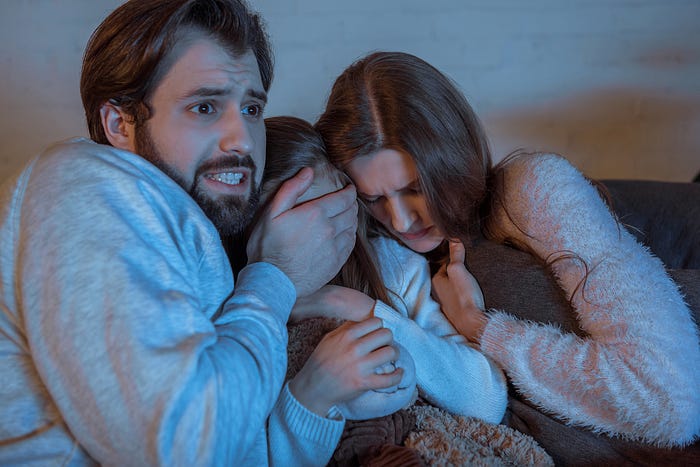Feeling Fear

Is feeling fear a good or a bad thing?
The core of fear is the threat of harm and the possibility of pain, physical or psychological. Fear is a complicated emotion, and how fear makes you feel can be different from one person to the next. In some instances it can overwhelm and drain us, preventing us from living our lives fully, while in other scenarios it can save our lives by drawing our attention to an immediate threat and allowing us to react automatically in a way that will keep us alive and healthy. Fear can have a very important function in our lives. Furthermore, each of the so-called negative emotions (including fear) can be positive in the sense that some people enjoy experiencing them. (That is why I think it is misleading just to divide emotions into positive and negative, as many emotion theorists do.)
Enjoying fear
Some people actually appear to enjoy feeling fearful. Novels and movies that scare people are very popular, and I wanted to know why. Sitting in movie theaters turned away from the screen, I’d watch the audiences’ faces and saw many expressions, from slight worry to full-fledged terror. I also saw plenty of enjoyment. In our research, we have shown participants scary movie scenes while they sat alone in a room, their expressions recorded with a hidden video camera and found that those who expressed fear also had the physiological markers of being fearful (i.e., increased heart rate and blood flow to the large muscles in the legs).
Doing scary things
One could argue that people watching a horror film are not really in danger -and that the spectator knows that- but there are people who go beyond the vicarious, seeking fearful experiences. In extreme cases, some may even risk death in the sports and activities they pursue. I don’t know if it is fear that they enjoy, or the excitement often associated with taking such risks, or the relief and pride in their accomplishment they feel afterward.
Aversion to Fear
There are also people who are just the opposite, for whom fearful feelings are so toxic that they take extraordinary efforts to avoid feeling them. For every emotion there are people who enjoy experiencing the emotions and their opposites, people who can’t tolerate feeling them, as well as many people who do not seek to experience the emotion but who do not find its experience in most instances particularly toxic.
Paul Ekman is a well-known psychologist and co-discoverer of micro expressions. He was named one of the 100 most influential people in the world by TIME magazine in 2009. He has worked with many government agencies, domestic and abroad. Dr. Ekman has compiled over 50 years of his research to create comprehensive training tools to read the hidden emotions of those around you.